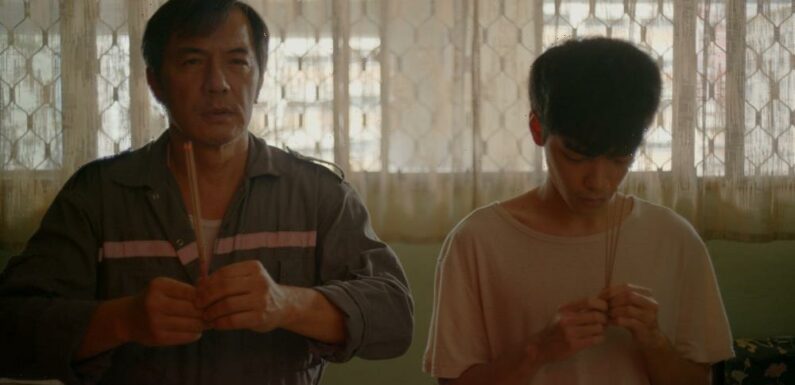
The slate of offerings from Taiwan at this year’s European Film Market is a solid one, without a doubt. Among the 92 titles of films and projects, there are recent Golden Horse award-winning titles as well as new regional and international co-productions, both completed or works in-progress, in a diverse range of genres that come with promising premises, and a delegation of at least 10 sales companies that will present at the event in Berlin.
Such a strong line-up of films available for international sales can be understood as a snapshot of current state of Taiwan cinema. There’s an emergence of a generation of new talent who dare to challenge the status quo of filmmaking and storytelling, and the ambition to reach an audience beyond the self-governed island is loud and clear. This is especially true following the international attention that “A Sun” and “The Falls” had previously garnered, the growing number of co-productions with new countries and partners thanks to the strong boost of the Taiwan Creative Content Agency (TAICCA) through its funding support, as well as new exhibition windows available from international streaming platforms.
“There has been a resurgence of funding in Taiwan productions in the past two years or so, plus signs of a rejuvenated audience interest locally in Taiwan productions, be them films or series,” Distribution Workshop’s CEO Jeffrey Chan says. Distribution Workshop has four titles featured in the Taiwan pavilion at EFM.
“The overall environment is conducive in the sense that the government and industries are concerted efforts [for the first time] to formulate policies as well as strategies for a longer-term growth, instead of just piece-meal subsidies and grants.”
But the domestic film industry still faces challenges. It is, in fact, still in transition. “Taiwan cinema is still searching for an identifiable feature as the legacy and influence of Taiwan New Cinema is fading and an adrenaline-fueled cash injection and zealous focus on commercial genre films have yet to make significant splash,” says Kuo Ming-jung, a film producer who was previously the program director for Singapore Intl. Film Festival and Taipei Film Festival.
“It’s caught in an awkward position where the gap between Taiwan cinema and the international festival circuit grows wider, and the commercial products get more local,” she notes. Indeed, such awkwardness can be seen in the 2022 box office in Taiwan. While 2022’s box office receipts rose to NTD 5.6 billion ($185 mil- lion) from 2021’s $155 million, horror feature “Incantation” was the only home-grown feature that made it to the top 10, with the rest being Hollywood blockbusters.
The lack of local hits means that raising funds from private investors for projects that sound less commercial is challenging.
Kuo’s latest project, eco fantasy “The Ancient Tree,” directed by Singing Chen (“The Man Who Couldn’t Leave”), is among the three new co-production projects that TAICCA will introduce at the EFM. This will present an important opportunity for the project’s future as the film’s focus “on telling a relatable good story is not enough to entice private investment,” she says. Increasing production costs and increasing emphasis on genre, stars and commercial return are among the obstacles.
Hence, going global becomes increasingly important for Taiwanese filmmakers, and international co-production is “a way to ensure that the new and upcoming Taiwanese talent are exposed to current state-of-the- art filmmaking across the world and especially in this region,” says Stefano Centini (“A Holy Family,” “In My Mother’s Skin”), an Italian film producer based in Taipei.
He is one of the producers of “Tomorrow Is a Long Time,” a multi- national arthouse drama backed by TAICCA’s Taiwan’s Intl. Co-funding Program (TICP) that will be making its world premiere at the Berlinale’s Generation section.
Centini notes that there is a new trend in Asian co-production, which has given producers more opportunities to explore various fundraising and talent options. “Tomorrow Is a Long Time,” for example, stars the acclaimed Taiwanese actor-director Leon Dai and is directed by Singaporean filmmaker Jow Zhi Wei (“After the Winter”). Several international film funds, including Singapore’s IMDA, France’s CNC Aides aux Cinemas du Monde, Taiwan’s TAICCA TICP funding scheme and Portugal’s ICA, are among the film’s main backers, as well as Taiwan’s Kaohsiung Film Fund and Taoyuan Production offer support.
Taiwan has become increasingly favorable for co-productions, says Centini, but a push for more original content creation aiming to reach a wider global audience is needed.
To young producer Clifford Miu (“American Girl”), the situation is hopeful. His latest work-in-progress project, “Yen and Allie,” is featured in this year’s Berlinale Talents’ Talent Project Market. Miu has been selected to take part in a two-week program for producers who are in the first decade of their careers, and will be given the opportunity to work with mentors on their pitching process to prepare themselves for meetings with prospective partners at the market.
Young filmmakers should seize all possible opportunities that can allow them to be seen on the global stage, notes Miu, from press and media exposure to international film festivals and market appearances, where they can get acquainted with not only industry professionals and peers but also audiences.
“American Girl,” the Golden Horse and Fipresci award-winning family drama, is now avail- able for streaming on Netflix. Miu says that helps further in making connections with global industry players.
“I think one can feel the ground shifting below our feet as the local market and audience reacts to the impact of the pandemic and the streaming platforms’ growing library of local films,” Miu says. “This transition and change can allow for a fresh and varied pool of funds and resources [that may not have been available before] to fund and support local films.”
Read More About:
Source: Read Full Article